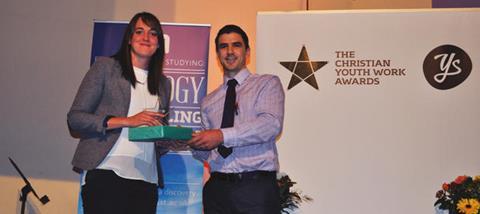
No point trying to be cryptic here. My primary thought for the last 17 hours could best be summarised as: what just happened?
When I accepted this assignment from this magazine’s editor a couple weeks ago, I mostly assumed a different outcome. And I’d been thinking about how youth workers in America have been processing the election with their groups leading up to November 8th. I hadn’t even given a single thought to the current questions about what we should do now.
So let’s start with pre-election youth ministry. My ministry organisation took a simple poll, not on how youth workers were planning to vote, but on if and how they were processing the election with their teenagers. The question was: “Are you now or do you have plans to help students think through and / or process this year’s presidential election?” The response options were:
- Yes, already have.
- Yes, we are planning to.
- No, not planning to but wish we were.
- No, was never a consideration.
Before I reveal the results, allow me to frame the context. I’m 53, and this has been - by a long shot - the most contentious election I’ve ever seen. It has been ugly, and hurtful. And to call it divisive does disservice to the word divisive. Like, we need a new, stronger word.
Trump tapped into a long-simmering anger held by a surprisingly large percentage of Americans (even though I was a Hillary supporter, I think it’s fair to say Trump didn’t create this anger, though he certainly threw fuel on the fire, then capitalised on it). People - particularly white people in blue collar areas - wanted change and Hillary didn’t represent change. No question about it: we’re going to experience change. To some that’s exhilarating and chock-full of promise; to many others, that’s terrifying, considering the punch-list of intended changes.
This white-hot polarisation brought with it an almost universal inability to understand how anyone could be Christian and espouse the view opposite to one’s own. Only a tiny percentage of Americans seemed to enjoy all of this. Conversations and Facebook posts were dominated by memes and jokes about how people didn’t like their options, and how much they just wanted this to be over.
So, what’s a youth worker to do? In our poll, 64 per cent of youth workers (a fairly substantial majority!) identified one of the ‘not talking about it’ options. I interacted with a handful of youth workers who were an exception to this, many of whom had wise and brilliantly crafted conversations with their teenagers. I don’t tend to interact much with youth workers on the far right, but I’m sure many of them were more prescriptive. But two-thirds avoided the subject.
Youth workers are way better at shepherding and pastoring than they are at leading conversations filled with tension
I found this both understandable and irresponsible. Given that the majority of over- 45 voters supported Trump, and the majority of under-45 voters supported Clinton, youth workers were often living in a tension: do I foster a conversation with my teenagers who lean left when it’s in conflict with their parents and church leadership who lean right? (Many youth workers quite literally feared for their jobs had they unintentionally misstepped on that tension!)
The problem is that what we don’t talk about is called the null curriculum and it communicates as much or more than what we do talk about. Not talking about the election (and politics and worldviews and everything else this cycle was about) unintentionally communicated to teenagers:
- The Church has nothing to say about this.
- Therefore, God isn’t interested in this area of our lives.
- Even our behaviours in this election (let alone our views) are completely distinct from our beliefs, and our faith has nothing to do with this area of our lives.
But this morning, as I sipped my coffee and hoped it would magically do much more than help me wake up, I had a little ‘a-ha’ moment. I was thinking of three mini-stories. First, my oldest child, a 22-year-old who identifies as gender neutral, texted to say they didn’t feel safe. Then a close friend texted to say she was keeping her adopted African children home from school today, worried they would be bullied. Finally, a youth worker apologised for not responding to an email explaining that he had to go to hospital since one of his young people had been admitted with suicidal ideation last evening, for the same reason: not feeling safe.
I’ll quickly acknowledge that clearly half of our country feels more safe today, but as my heart went out to the people in each of these stories, I was struck by the fact that most youth workers are way better at shepherding and pastoring than they are at leading conversations filled with tension. In other words, we’re better equipped (and will do a better job of living into our calling post-election) for responding to heart stuff than being proactive about head stuff.
My organisation scrambled to create a post-election discussion guide today as a free resource, and hundreds of youth workers quickly downloaded it. We’re better responders than we are debate hosts.






































